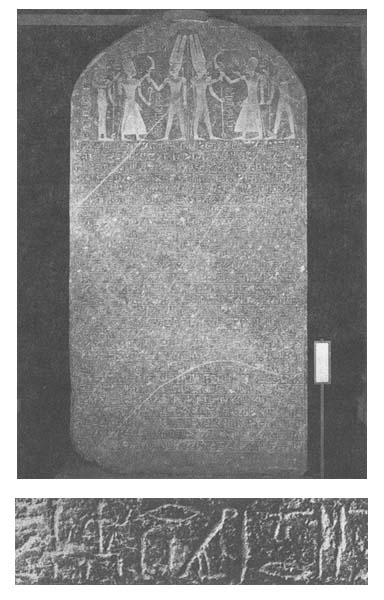Image Details

Jurgen Liepe
“Canaan has been plundered into every sort of woe;” declares the Merneptah Stele, “Ashkelon has been overcome; Gezer has been captured. Yanoam was made nonexistent; Israel is laid waste, his seed is not.” Near the bottom of the stele, Merneptah also trumpets his earlier campaigns in Canaan at the beginning of his reign.
The mention of Israel—the earliest non-biblical reference—occurs slightly to the left of center in the second line from the bottom (see detail). Unpronounced signs, called determinatives, attached to the place names in this section of the stele indicate that Ashkelon, Gezer and Yanoam were cities and that Canaan was a foreign land; the determinative for Israel, however, indicates that the term referred to a people rather than a place. The Merneptah Stele shows that a people called Israel existed in 1212 B.C.E. and that the pharaoh of Egypt not only knew about them but also felt it was worth boasting about having defeated them in battle.
